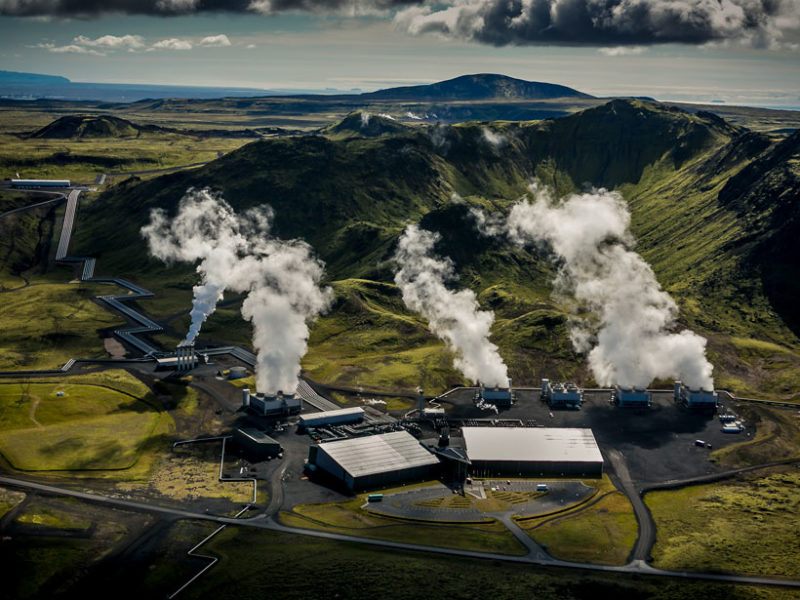Basalts Turn Carbon into Stone for Permanent Storage [View all]
Scientists have shown that mineral carbonation can permanently capture and store carbon quickly enough and safely enough to rise to the challenge of climate change.

Iceland’s Hellisheiði Geothermal Power Station, above, is the third largest geothermal power station in the world and the site of ongoing mineral carbonation experiments. Credit: Árni Sæberg
By Kimberly M. S. Cartier 20 March 2020
In carbon storage experiments tied to geothermal power plants in Iceland, 90% of injected carbon dioxide (CO2) transformed into minerals in just 2 years. Standard carbon storage methods can take thousands of years to do the same.
“We are basing our methods on this natural process which is part of the big carbon cycle where all carbon on Earth derives from and ends up in rocks,” said one of the lead researchers, Sandra Snæbjörnsdóttir. She is the head of CO2 mineral storage at CarbFix.
“By mineralizing, we are permanently getting rid of the CO2. We can walk away from it. We don’t have to monitor it for the next decades or so. The permanent storage is the key here,” she said.
Fast and Forever
The Intergovernmental Panel on Climate Change reported that to keep climate change below 1.5°C, humanity must not only drastically cut CO2 emissions but actively remove CO2 from the atmosphere and keep it locked away. Most ongoing carbon capture and storage (CCS) projects seal captured CO2 deep underground in sedimentary rock reservoirs to keep it from escaping. That carbon eventually seeps into small rock pores, dissolves in groundwater, and reacts with the rock to become carbonate minerals, trapping the carbon for good.
More:
https://eos.org/articles/basalts-turn-carbon-into-stone-for-permanent-storage
